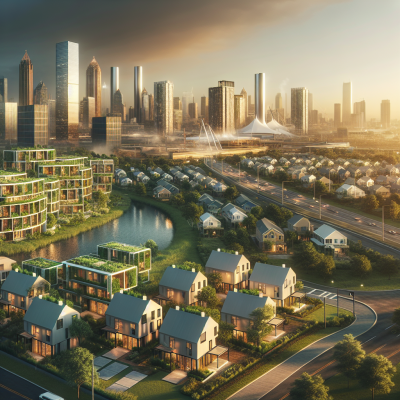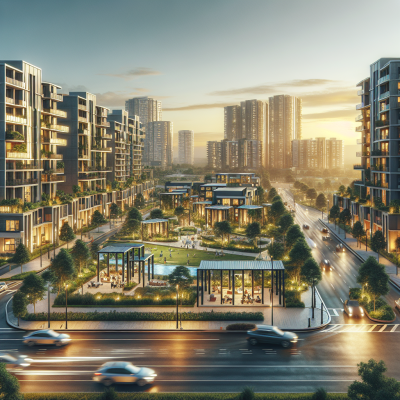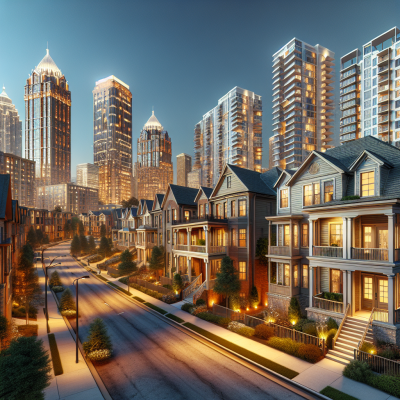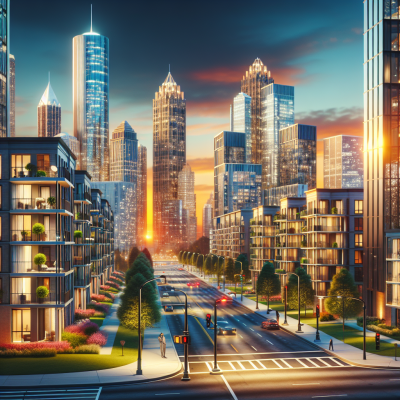
Future of Housing in Atlanta
Urban Development and Planning Initiatives
Atlanta is undergoing a significant transformation in urban development as the city grows and adapts to meet the needs of its residents. These initiatives aim to enhance the livability, accessibility, and sustainability of the city. Bold steps are being taken to revitalize existing neighborhoods and develop new areas, offering a blend of residential, commercial, and recreational spaces.
Upcoming Projects and Their Impact on Housing
One of the most ambitious projects is the Atlanta BeltLine, a sustainable redevelopment project that aims to convert former railway corridors into a network of parks, trails, and transit routes. This project is expected to redefine urban living in Atlanta, offering extensive housing opportunities in the form of new residential developments around the BeltLine. The project has already spurred significant investments in nearby neighborhoods, increasing property values and driving demand for housing.
Another noteworthy initiative is The Gulch redevelopment in downtown Atlanta, a transformative project intended to create a bustling mixed-use destination. The development consists of residential units, retail spaces, and office buildings. This project is anticipated to generate thousands of new homes, promoting urban density and reducing reliance on car travel.
The Invest Atlanta initiative focuses on affordable housing, ensuring that the city's growth encompasses inclusive and equitable housing solutions. Through public-private partnerships, Invest Atlanta supports the construction of affordable homes and provides financial assistance to low and moderate-income families.
Sustainability and Green Housing Trends
Atlanta is embracing a future that prioritizes sustainability. Green housing trends are gaining momentum, with more developers and homeowners integrating eco-friendly practices into building designs.
Incorporating Sustainable Practices in Housing
Smart homes equipped with energy-efficient appliances, LED lighting, and programmable thermostats are becoming more prevalent in Atlanta's housing market. Another popular sustainable practice includes the use of recycled and locally-sourced materials in construction, which minimizes the ecological footprint.
Roof gardens and community urban farming are also emerging trends, promoting local food production and improving air quality. Many new housing projects now include green roofs and communal vegetable plots, fostering a sense of community while contributing to environmental well-being.
Water conservation practices are being observed through the installation of systems that collect rainwater for non-potable usage and the increasing use of drought-resistant landscaping to reduce the city's water consumption.
Notable Green Communities in Atlanta
Several neighborhoods in Atlanta have emerged as leaders in sustainable living. Glenwood Park, situated along the BeltLine, is a prime example, featuring energy-efficient homes, walkable streets, and ample green spaces. The community emphasizes smart growth principles and encourages residents to adopt environmentally-conscious lifestyles.
Serenbe, located on the outskirts of Atlanta, is another exceptional green community. Built as an eco-friendly utopia, Serenbe combines cutting-edge sustainability with modern amenities. The neighborhood includes solar-powered homes, certified sustainable restaurants, and interconnected pathways, fostering a more intimate connection with nature.
In summary, the future of housing in Atlanta is being shaped by innovative urban development and planning initiatives coupled with a strong emphasis on sustainability. As the city evolves, these changes will help ensure Atlanta remains a vibrant, inclusive, and environmentally-responsible metropolis.






